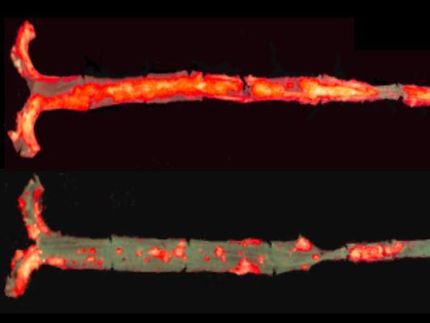ThromboGenics and BioInvent Awarded Euro 2 Million EU Grant for ANGIOSTOP Anti-Angiogenesis Programme
ThromboGenics NV and BioInvent International AB announced that they have received a Euro 2 million grant from the European Union for the joint development of a new class of anti-angiogenesis agents. The new agents will be based on antibodies against Placental Growth Factor (PlGF). This EU grant will support the research efforts initiated by ThromboGenics and BioInvent in 2004 as part of a strategic collaboration. The funded research will be conducted within the ANGIOSTOP consortium that will also comprise four expert academic groups from Belgium, Germany and the UK - University of Leuven (VIB Center for Transgene Technology and gene therapy, and Department of hepatology and Gastroentrology), University medicine Berlin and Cardiff University.
The financial support from EU's Framework Programme 6 will contribute over the next two years to the further development of the antibody-based product candidate TB-403 for treatment of tumours, inflammation and eye disease. TB-403 has shown good inhibition of PlGF-associated angiogenesis and tumour growth in preclinical models. The first stages in the toxicology programme for this product candidate have already started. The PlGF growth factor is secreted by tumours and is specifically expressed in cancer and chronic inflammatory conditions. It affects the formation of new blood vessels in tissue that are under stress. PlGF does not seem to affect normal, physiological angiogenesis, unlike other treatments already on the market. Therefore, the inhibition of PlGF is expected to have fewer side effects than existing anti-VEGF agents, but will still have the desired effect on various diseases.
Other news from the department business & finance

Get the life science industry in your inbox
By submitting this form you agree that LUMITOS AG will send you the newsletter(s) selected above by email. Your data will not be passed on to third parties. Your data will be stored and processed in accordance with our data protection regulations. LUMITOS may contact you by email for the purpose of advertising or market and opinion surveys. You can revoke your consent at any time without giving reasons to LUMITOS AG, Ernst-Augustin-Str. 2, 12489 Berlin, Germany or by e-mail at revoke@lumitos.com with effect for the future. In addition, each email contains a link to unsubscribe from the corresponding newsletter.
More news from our other portals
See the theme worlds for related content
Topic world Gene therapy
Genetic diseases once considered untreatable are now at the center of innovative therapeutic approaches. Research and development of gene therapies in biotech and pharma aim to directly correct or replace defective or missing genes to combat disease at the molecular level. This revolutionary approach promises not only to treat symptoms, but to eliminate the cause of the disease itself.

Topic world Gene therapy
Genetic diseases once considered untreatable are now at the center of innovative therapeutic approaches. Research and development of gene therapies in biotech and pharma aim to directly correct or replace defective or missing genes to combat disease at the molecular level. This revolutionary approach promises not only to treat symptoms, but to eliminate the cause of the disease itself.
























































